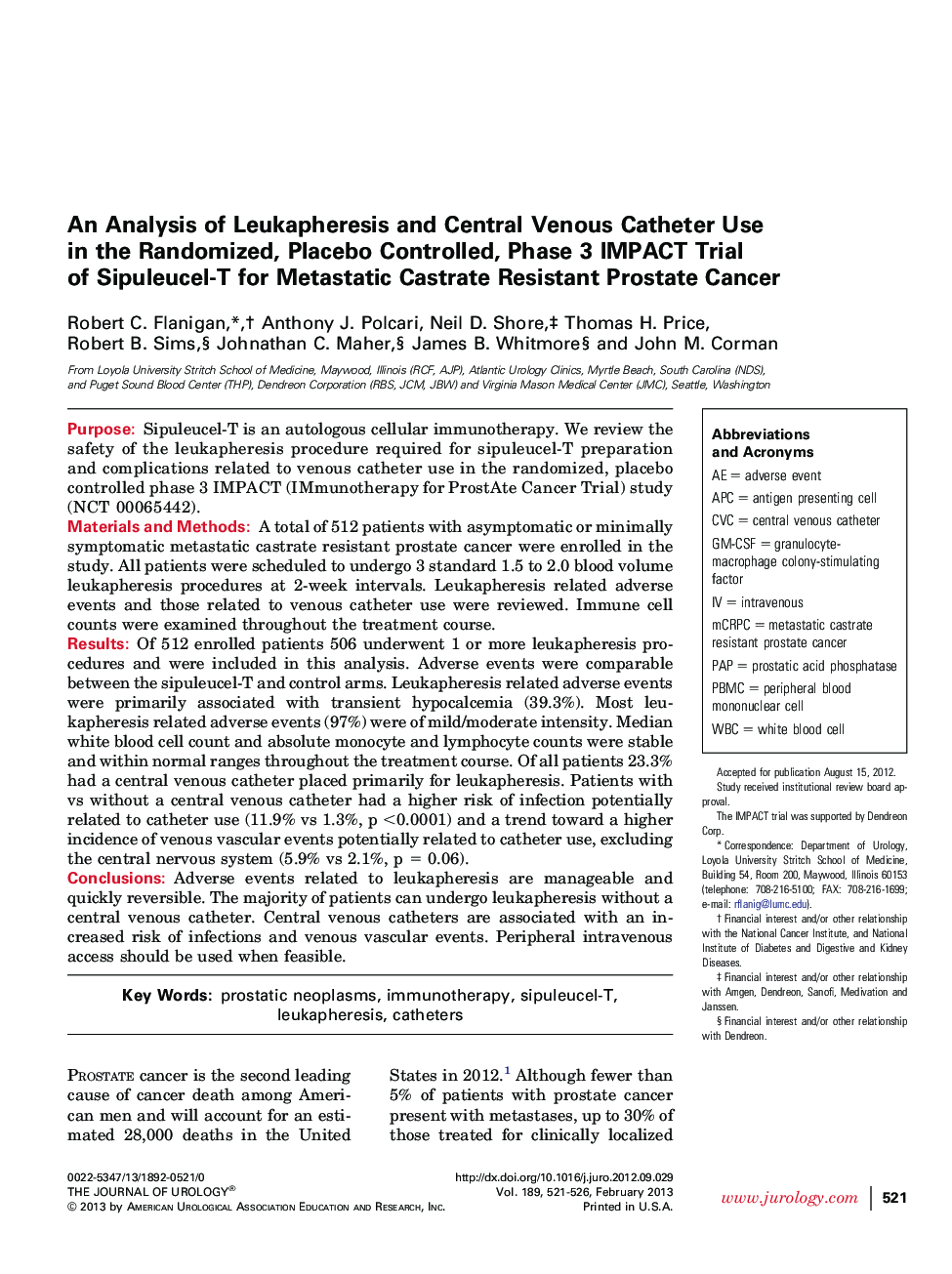| کد مقاله | کد نشریه | سال انتشار | مقاله انگلیسی | نسخه تمام متن |
|---|---|---|---|---|
| 3861238 | 1645514 | 2013 | 6 صفحه PDF | دانلود رایگان |

PurposeSipuleucel-T is an autologous cellular immunotherapy. We review the safety of the leukapheresis procedure required for sipuleucel-T preparation and complications related to venous catheter use in the randomized, placebo controlled phase 3 IMPACT (IMmunotherapy for ProstAte Cancer Trial) study (NCT 00065442).Materials and MethodsA total of 512 patients with asymptomatic or minimally symptomatic metastatic castrate resistant prostate cancer were enrolled in the study. All patients were scheduled to undergo 3 standard 1.5 to 2.0 blood volume leukapheresis procedures at 2-week intervals. Leukapheresis related adverse events and those related to venous catheter use were reviewed. Immune cell counts were examined throughout the treatment course.ResultsOf 512 enrolled patients 506 underwent 1 or more leukapheresis procedures and were included in this analysis. Adverse events were comparable between the sipuleucel-T and control arms. Leukapheresis related adverse events were primarily associated with transient hypocalcemia (39.3%). Most leukapheresis related adverse events (97%) were of mild/moderate intensity. Median white blood cell count and absolute monocyte and lymphocyte counts were stable and within normal ranges throughout the treatment course. Of all patients 23.3% had a central venous catheter placed primarily for leukapheresis. Patients with vs without a central venous catheter had a higher risk of infection potentially related to catheter use (11.9% vs 1.3%, p <0.0001) and a trend toward a higher incidence of venous vascular events potentially related to catheter use, excluding the central nervous system (5.9% vs 2.1%, p = 0.06).ConclusionsAdverse events related to leukapheresis are manageable and quickly reversible. The majority of patients can undergo leukapheresis without a central venous catheter. Central venous catheters are associated with an increased risk of infections and venous vascular events. Peripheral intravenous access should be used when feasible.
Journal: The Journal of Urology - Volume 189, Issue 2, February 2013, Pages 521–526